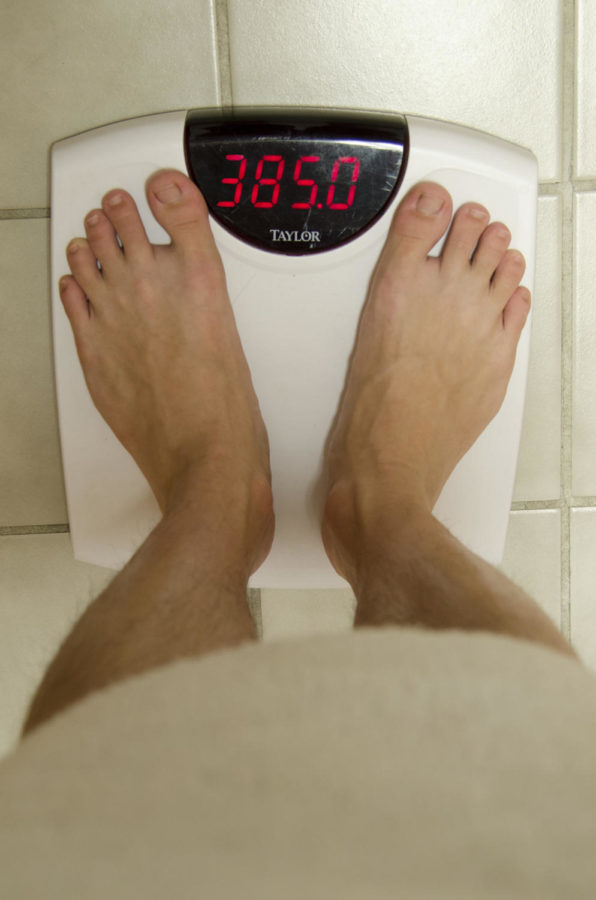Steady weight gain in college causes health problems
It is easy for one to point out the fact that someone that is morbidly obese is unhealthy. Yes, this could be true, however not all people who are overweight can be “healed” by diet and exercise. There is a chance that there could be an underlying disorder similar anorexia or bulimia, but the opposite.
April 10, 2013
Students often hear about the dreaded freshman 15, or the so-called unavoidable weight gain in college.
It can happen to anyone, but students should also be cautious about steady weight gain throughout their entire college career, research shows.
After following 131 students throughout their college careers, researchers at Auburn University in Alabama found that 70 percent of them had put on weight by graduation.
The average amount of weight gain in the study was about 12 pounds. Students considered to be overweight or obese increased from 18 percent to 31 percent by the end of the four years.
“As we get older, naturally we all tend to gain weight,” said Dr. Lanningham-Foster, associate professor of food science and human nutrition.
As students go to college, they tend to have more free time and it might influence how physically active they are, as well as their food choices. This could be a crucial time for people to make sure whatever choices they are making on their own with their diet and exercise are good ones, said Lanningham-Foster.
“We want to have everybody to strive to be ideal body weight. It’s easier to prevent gaining weight than to take it off. Once a person is heavy, especially when they’re excessively obese, it’s very hard to lose weight,” said Dr. Rebecca Fritzsche of Thielen Student Health.
It is also difficult to keep weight off after a diet.
“It seems like once we have gained that amount of weight it’s very, very difficult to maintain those habits that translate into continued weight loss or retention of weight loss,” Fritzsche said.
Obesity is a major threat to people’s health and can cause diabetes, high blood pressure, pain in the joints, menstrual irregularity, cardiovascular disease, sleep apnea, some cancers and problems with fertility, said Lanningham-Foster and Fritzsche.
“There are some economical aspects of it. Your health costs are going to be greater if you have obesity and its associated diseases. It’s probably going to impact the overall quality of your life.” Fritzsche said.
Students could be developing bad habits now that cause them weight gain that will make it harder for them to keep a healthy weight a few years down the road, Lanningham-Foster said.
“Along with diseases, there is also issues related to the stigma associated with obesity. Right now college students are trying to go to college and do something so they can get that great job,” Lanningham-Foster said. “If they go and try to get that great job and they are overweight or obese, they are more likely to be discriminated against even through that hiring process.”
The common reason a person gains weight is that they are taking in more calories than they are using on any given day.
“People don’t realize how many calories are in food and how much exercise it takes to burn off those calories,” Lanningham-Foster said.
“Let’s say I sit down and eat two Oreos. That’s 100 calories. The amount of time and exercise it’s going to take for you to burn 100 calories … lets just say through walking at a good pace … could take you somewhere between 30 and 45 minutes.”
Both Lanningham-Foster and Fritzsche suggest that students be as active throughout the day as they can be.
“It could be raking leaves, shoveling snow, scrubbing floors, even walking around this campus … walking up the stairs, walking farther from the parking lot, or walking from the grocery store,” Fritzsche said.
Having regular constant movment is better for a person than being sedentary a majority of the time and vigorously working out a couple times a week, said Lanningham-Foster.
“These are simple strategies, but in the end, all those little strategies add up to impact your daily number of calories burned,” Lanningham-Foster said.







